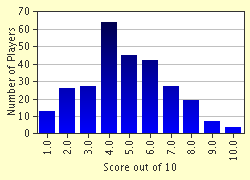Quiz Answer Key and Fun Facts
1. This term for liquor came into popular usage from a Philadelphia distiller, but was really derived from a Middle Dutch verb, dating back to 1590. Hic! What's the word?
2. This word has its origin in the U.S. Congress and dates from 1820, when the 'Missouri question' was being debated. What's the word?
3. This term for U.S. currency dates back to the 1500s, in the Czech Republic, no less! It has as is root the Germanic 'Joachimstaler.' Vat is de verd?
4. Vile ve are, whoops! sorry! While we're on the topic of U.S. currency, Thomas Jefferson suggested that we use another foreign word for a unit of currency. Which one?
5. This word has had multiple meanings during its evolution, each quite different, but each related to the same root in Dutch having to do with drugs. Which word?
6. This word probably came to us from the Latin for 'who are you?', and from the French for 'what is it?' So....what is it?
7. This word, strangely enough, reverts back to a holy place and the Hospital of St Mary in London. What, pray tell, is the word?
8. The original meaning of this word in Old English is 'rent' or 'tribute, which could be paid in cattle or goods instead of coins, usually the opposite of what the collector wanted. The word?
9. This word could have originated with Dr. Seuss or, then again, it could come from Edgar Bergen's dummy. Either way, it's become a part of our common usage. Which one is it?
10. This word has nothing to do with horses, contrary to what most people think. It has to do with incubus or succubus phenomena. Confused? Good. Now, what's the word?
Source: Author
vendome
This quiz was reviewed by FunTrivia editor
looney_tunes before going online.
Any errors found in FunTrivia content are routinely corrected through our feedback system.
